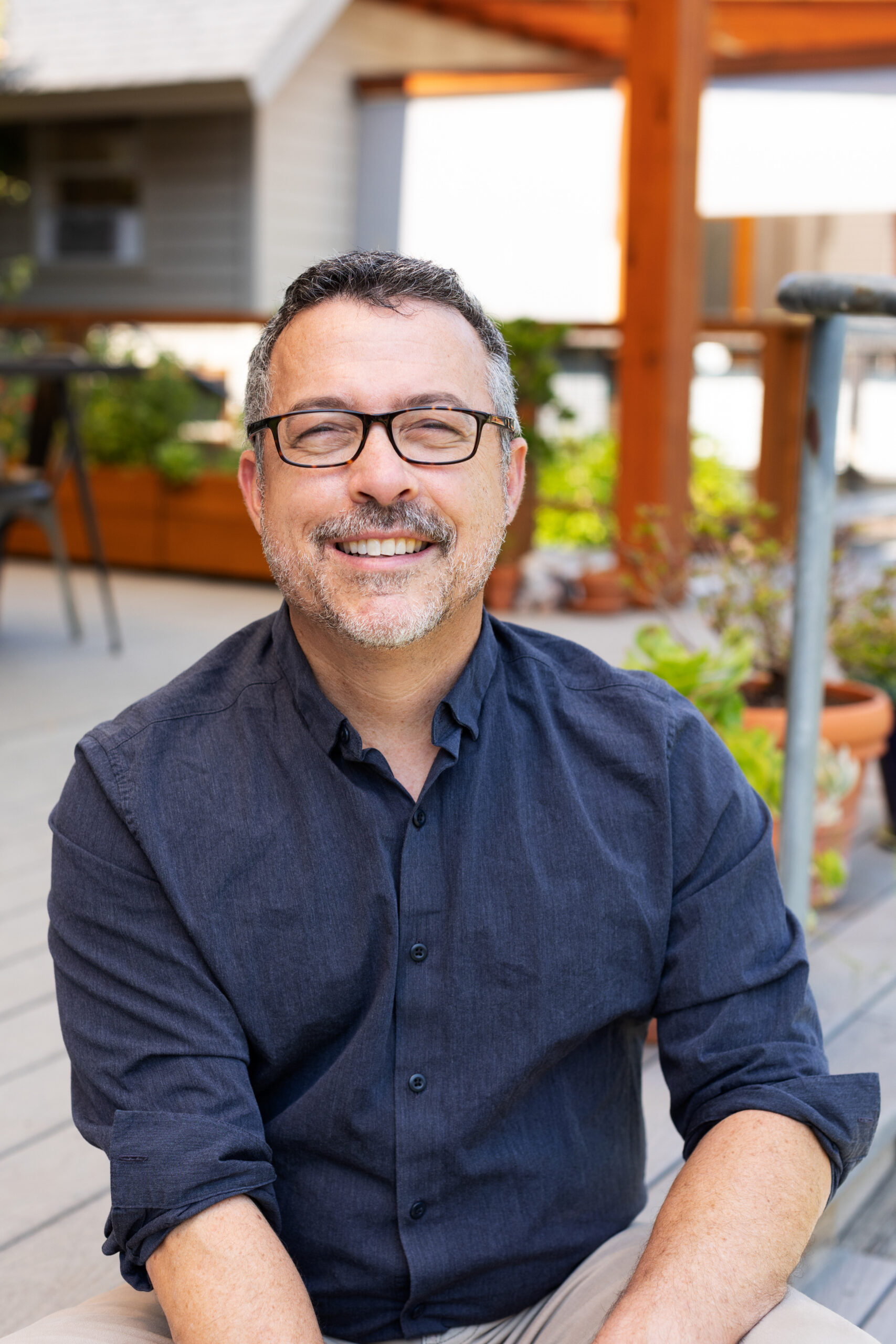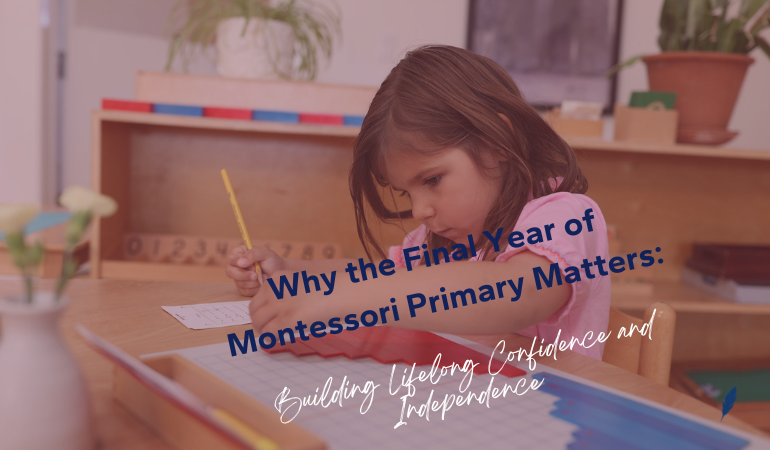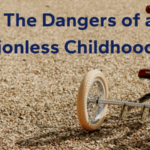Based on a presentation by Siri Panday and Cheryl Chretien
Complied by Terry Dubow
Parents everywhere want the same things for their children: confidence, independence, and a love of learning that endures far beyond the classroom. For families familiar with Montessori education—and even for those just beginning to explore its possibilities—the final year of the Primary program offers a uniquely powerful opportunity to foster these qualities.
At Montessori schools like Marin Montessori, the three-year cycle of the Primary classroom culminates in what is often referred to as the kindergarten year. This final year is transformative. It’s a time when children apply the foundational skills they’ve been building since they were toddlers, step into leadership roles among their peers, and fully embrace the joy of learning independently.
For parents new to Montessori, this year can feel unfamiliar—why not move on to a more traditional kindergarten program? For those already in the community, the question might be: What makes this year so essential?
As a former Montessori Guide of 11 years, and as a parent myself, I’ve seen firsthand what happens when children complete the full cycle. They leave not only ready for their next academic challenge but also with a profound sense of self-confidence and capability. Here’s why the final year of Montessori Primary matters—and why it’s worth considering, no matter where your child is now.
A Year of Leadership and Mastery
Montessori classrooms are intentionally designed to serve children in mixed-age groups, typically spanning three years. This structure allows younger children to learn by observing older peers and older children to solidify their knowledge by mentoring younger classmates. In the final year of Primary, your child becomes a classroom leader—a role that fosters confidence, patience, and the ability to collaborate with others.
For example, in their final year, children often guide younger peers through practical life activities, such as polishing wood or caring for plants. These moments are not only deeply rewarding but also help older children refine their social-emotional skills. I’ve witnessed five-year-olds mediating disputes between younger classmates with remarkable maturity, saying things like, “Let’s hear what you have to say, and then we’ll listen to the other person.” This peer-to-peer problem-solving builds self-esteem and reinforces the cooperative spirit Montessori classrooms are known for.
Advanced Academic Opportunities
The final year is also when children dive into some of the most exciting and complex Montessori materials. In Montessori programs like ours, this is the year when foundational skills—such as early counting and phonetic awareness—culminate in advanced work, such as the passage to abstraction in math or reading full sentences with confidence.
Take the math curriculum, for instance. During their final year, children often move from working with concrete materials like golden beads to more abstract concepts using tools like the stamp game or bead frames. One child recently created her own addition chart, meticulously filling it out and then double-checking her work—entirely self-directed and inspired from within. This kind of deep engagement is only possible when children have had the time and space to build a solid foundation in earlier years and the opportunity to select their own work and agency to challenge themselves too.
Similarly, language lessons become increasingly sophisticated. Activities like the “farm game” combine reading, writing, and grammar in a hands-on, playful way. A child who reads command cards might read and act out sentences such as “Jump and kick” before progressing to writing and analyzing more complex phrases. These experiences make learning joyful and memorable—a hallmark of Montessori education.
Independence and Real-World Readiness
One of the most remarkable aspects of the Montessori approach is its emphasis on independence. In their final year of Primary, children are given opportunities to take ownership of their learning in meaningful ways. Whether it’s completing a detailed map of the world, identifying native plants on a nature hike, or presenting a report to their classmates, these activities nurture a sense of accomplishment and self-reliance.
For example, our five-year-olds often participate in hikes to Ring Mountain, where they identify plants like the Tiburon mariposa lily. These hands-on experiences not only enrich their understanding of the natural world but also instill a deep sense of curiosity and pride in their capabilities and connection to their local natural environment. When children see their efforts come to fruition, they carry that confidence into every future challenge. It is our hope that having children grounded and connected to the natural world promotes a respect for and responsibility to natural spaces for recreation and preservation.
Preparing for What Comes Next
The final year of Montessori Primary is not just about closing one chapter; it’s about preparing for launching into the next exciting one. Like a good page-turner, the next chapter at an authentic and fully implemented Montessori school includes the exciting next level of challenge in a lower elementary learning community. By the time children transition to the Lower Elementary community, they have developed not only academic skills but also the social-emotional tools to thrive in a new environment. They know how to advocate for themselves, collaborate with others, and approach new challenges with confidence.
In our Lower Elementary spaces, they are called to use all of these skills as collaborative ‘big work’ requires they navigate working with partners and carrying out all steps of their follow-up work.
One parent recently shared that their child, after completing the full three-year cycle, entered a traditional first-grade program with a level of maturity and self-awareness that set them apart. “They knew how to be a learner,” the parent said, “not just a student.” This distinction—between passive learning and active engagement—is one of the greatest gifts of a Montessori education.
A Choice That Matters
Choosing to stay for the final year of Primary can feel like swimming against the tide, especially when traditional kindergarten programs beckon. But this choice is a profound investment in your child’s future. It’s a chance to give them the gift of leadership, mastery, and independence—qualities that will serve them for a lifetime.
Whether you’re part of our Marin Montessori community or exploring Montessori for the first time, we invite you to learn more about the transformative power of the final year. If you’re curious about how this approach can benefit your child, reach out to us or visit a Montessori school near you. Together, we can nurture the next generation of confident, capable learners.

Terry is the Director of Communications and Strategic Initiatives at Marin Montessori School. A classroom teacher for 30 years, he manages Grounded and Soaring.





